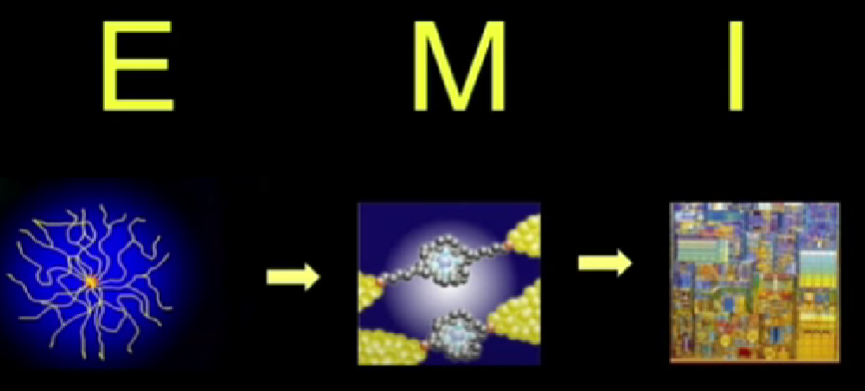I’ve been listening to Brené Brown’s book Atlas of the Heart as I ride buses around Dallas. A good chunk of this book is about defining and describing various emotions, about finding the correct language that resonate with the abstract emotions we feel, to give them a less ambiguous shape so we can start to understand how they relate to and lead to our behaviors.
There’s the quote that opens the book:
Heart is sea,
language is shore.
Whatever sea includes,
will hit the shore.
--- Rumi
Language is powerful. Language can inspire us, move us, enrage us, and devastate us. It can light up a beacon of hope in a dire situation, it can be weaponized and fan the flame of a crowd, or get Tyrion Lannister out of the Vale of Arryn without going through the moon door.
In his Ted talk on technology’s epic story, Kevin Kelly (KK) talked about how energy, matter and information are interrelated. Einstein showed energy and matter are equivalent, and quantum computing links information with matter and energy as well.

I think deep down, the power (which could mean literal energy) of language comes from the power of information.
It might be why the best way to learn something is to try to teach it to someone else, to express the idea in your own language. KK once said:
What I discovered, which is what many writers discover, is that I write in order to think.
I’d say, “I think I have an idea,” but when I began to write it, I realize, “I have no idea,” and I don’t actually know what I think until I try and write it… that was the revelation. --- Tools of Titans - Kevin Kelly, P472
Another weird example of language that really impressed me came from Robert Sapolsky’s lecture on the insula cortex. The following is adapted from the transcript. It might be a bit rambly because of the lecture format, but I love the way he describes it, and I recommend you watch the video directly.
Any mammal, when bites into some rotten, disgusting, spoiled food, the insula activates and triggers gagging reflexes, animal gags, spits it out, its stomach heaves, it throws it up, etc. The insula keeps you from poisoning yourself with toxic food, that’s great.
Get some college freshmen volunteer inside a brain scanner and bites into some rancid fetid food, same deal, insula activates.
Now instead of eating something disgusting, have them just think about eating something disgusting - a cockroach for example, the insula cortex also activates. In most mammals, insula cortex does gustatory disgust, and for us it also does thoughts about gustatory disgust.
What’s more interesting, instead of having the person eat something disgusting, or thinking about something disgusting to eat, make them think about something that is morally disgusting, and the insula activates in humans - this part of the brain also mediates moral disgust.
Presumably forty/ fifty thousand years ago, when we came with the notion of norm violations that could be so extreme, that it winds up being appalling - they had a meeting, they said we can’t invent a new part of the brain, what that insula does - disgusting foods, disgusting behavior, I don’t know, sounds similar, expand it in there, give me some duct tape… and now suddenly your insulin also does moral disgust.
That’s why if something is sufficiently morally disgusting, we feel sick to our stomachs, it leaves a bad taste in our mouth, we feel queasy.
And interestingly, in most major languages there is the usage of the same word for both bad food and bad morality. In Chinese, the example is “道德败坏”.
It’s so weird that languages figured out the neurobiology way before we did.
Another thing. Sapolsky has a whole lecture on the biology background of language, in which he mentioned a gene FOXP2 (a transcription factor) that was related to language function.
The FOXP2 gene exists in all sorts of animals ranging from mammals and birds. It’s immensely conserved and haven’t changed evolutionarily for a long, long time. You see the same version in everybody else, from mice to apes to birds, but we humans have a different version. It was estimated that we diverged from everybody else recently (a couple of thousands years ago), and our mutated version was extremely positively selected for.
Whatever this gene is doing, once it went on the human path, it changed real fast under major selective advantageous condition, so we have a different version than everyone else.
Another thing. I have been revisiting the book on trauma The Body Keeps The Score. It talked about how defining the condition of PTSD, establishing the concept, giving it a name and label, really helped research booming in the following years. However, Sapolsky also talked about how we should be careful about thinking only within a certain category, being limited in a bucket.
Last thing, on group wisdom. Ants can use group wisdom to solve the Traveling salesman problem, which is a NP-hard problem, for details check out this Sapolsky lecture.
I wonder if language is our version of group wisdom. Collectively, we shaped our language together by choosing which words to use and which ones not to, based mostly on what feels right or good to us, and we nailed that insula cortex stuff. And in a way the large language models like GPT, trained on a good chunk of the texts from the internet, represents our group wisdom by absorbing all the information we’ve documented using our language.
P.S. Reading this messy blog after finished, I realized it’s basically an implicit ad for lectures from Robert Sapolsky 😂.